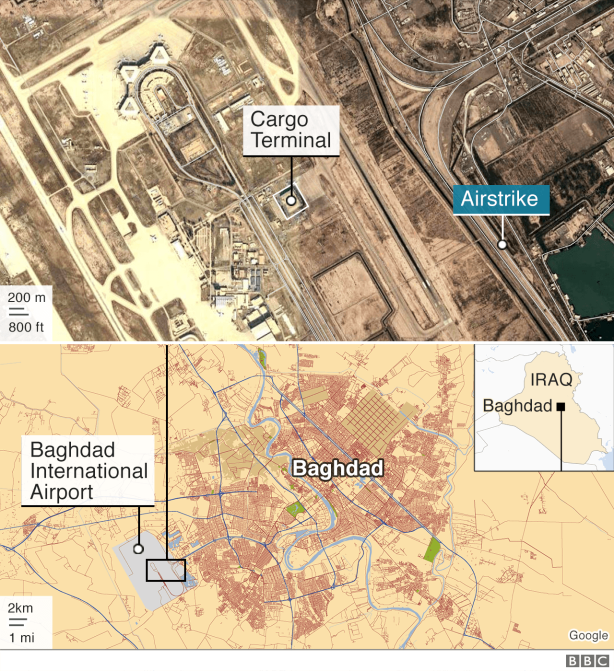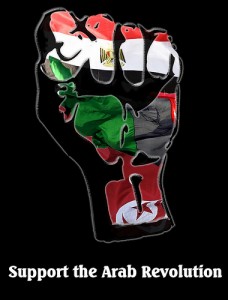 Written by Rahim Hamid, Ahwazi Arab writer
Written by Rahim Hamid, Ahwazi Arab writer
It seems the Italian authorities thought they had to cover up all the nudes in a museum for President Rouhani’s visit. Europe allegedly despises the veiling of ordinary Muslim women, but hypocritically covers up statues to appease the Iranian Islamic leaders – censoring classical art is all about oil.
The West’s silence with respect to Iranian terrorism and Tehran’s interference in the affairs of others is a strong contributing reason for all that is happening and will happen in this region. The West’s double standards in defining terrorism and what it means to counter it have now become overt to all.
Khamenei, the main backer of Assad, continues to support the Syrian dictator, responsible for a war that has killed over 250,000 people and displaced more than half of the country’s population.
The major powers, especially the United States, look to the region through a different lens than the Arabs and other regional nations do. It appears that immediate economic, political and military interests are the main drives for the involvement of the Western countries in the Middle East, and no other considerations, such as human rights and long-term implications seem to be of any importance at the current juncture.
Iran rejoiced and welcomed Barack Obama’s victory in the presidential election in 2009. The Iranian pro regime masses at that time translated Obama’s name into Persian to read; “He is with us.”
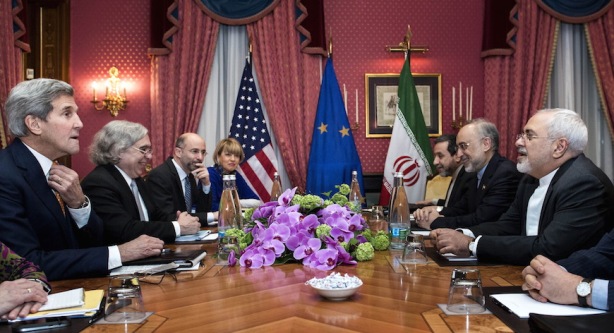
U.S. Secretary of State John Kerry (L), U.S. Secretary of Energy Ernest Moniz (2nd L), Head of the Iranian Atomic Energy Organisation Ali Akbar Salehi (2nd R) and Iranian Foreign Minister Javad Zarif (R) wait with others ahead of a meeting at the Beau Rivage Palace Hotel in Lausanne on March 26, 2015 during negotiations on the Iranian nuclear programme. REUTERS/Brendan Smialowski/Pool – RTR4UXKJ
Many remained heedless towards the Iranian political readability. But with the progress of time and Obama’s focus on the Iranian nuclear program after failing in all other areas in the region, some began talking about the wager of “Obama” on Iran in the hope that history preserves his legacy after he leaves the presidency in early 2017. In fact, the intent of the Obama administration, all along, has been to empower the Islamic Republic regionally – and they’ve certainly succeeded.
Based on his actions, Obama clearly doesn’t care about the fate of Iran and ordinary citizens who are oppressed by the regime any more than Bush did; he’s better at PR speeches and paying lip service to human rights. He’s naive in that he managed to convince himself and others in his administration that it would be in the interests of the United States to have Tehran as a regional policeman, rather than the United States, and a “partner for peace” for the West, via controlling the region.
Iran’s involvement in the region would enable the US to “pivot to Asia” or otherwise focus on whatever the latest foreign policy trend the policy wonks are recommending. In reality, allowing Iran’s expansionist ambitions is a recipe for endless war. Despite his seemingly idealistic vision, Obama is certainly no anti-establishment guy.
Obama’s primary ‘legacy’ has been to empower fascist demagogues, dictators and totalitarians domestically – such as Trump, who probably genuinely could shoot people and still get more votes, as he claimed – and globally. Proof is his support for the political descendant of Hugo Chavez in Venezuela, the Castro regime in Cuba, the brutal Islamic State regime, Bashir al-Assad. Obama’s policies have also led to Putin’s Russia increasing their interference and influence around the world.
George W. Bush considered Iran part of the “axis of evil”, and Iran calls the United States “the Great Satan”, today we witness a temporary marriage between “the evil” and “the great Satan”.
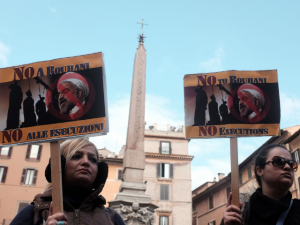
Protests against Rouhani’s visit in Rome
What brought the region and the world to this point? How will the face of the region change after Tehran feels emboldened by the loosening of Washington’s grip on the region, giving the green light to the Islamic Republic’s interventions in the internal affairs of Arab countries, and continuous strengthening of sleeper cells and spy networks, agents of influence, support for terrorism, and instigation of sectarian strife in the region?
The Western States, on the one hand, shake hands with state sponsors of terrorism, and secretly strengthen those bonds with multiple partnerships on various levels, and on the other, these Western states demand that Arab countries, led by Saudi Arabia, fight terrorism and freeze the financing of terrorist organizations, root out support for terrorism in all forms. Hypocritically, these states simultaneously slam and condemn Saudi Arabia for executing terrorists, so long as such condemnations play into the hands of the Islamic Republic.
These two contradictory stands do not mix well. They can work only in the baseless fantasy of Obama’s projected entente with Iran, allegedly aimed at providing the region with security, stability and integrity.
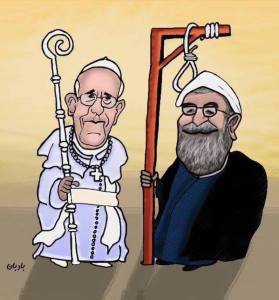 With honesty that suits the political landscape and developments around us, we should say without hesitation or shame: the Iranian aggression and projected expansion that targets our nations with the tacit complicity, and the terrible silence of the West cannot be met only with a similar response.
With honesty that suits the political landscape and developments around us, we should say without hesitation or shame: the Iranian aggression and projected expansion that targets our nations with the tacit complicity, and the terrible silence of the West cannot be met only with a similar response.
This is the time to respond with firmness and determination in a world that tolerates no weakness or hesitation. Iran has spread its arms and military cells in our countries; it seeks to resuscitate a sinister version of the Persian Empire, create a Shiite Crescent and under the umbrella of Mahdism and other nationalist auspices while harping on the glories of the Sassanid past.
The current regime only understands the language of force. Therefore, we are forced to respond with the same methods. However, no strong response to the Islamic Republic’s expansionist ambitions can be made successfully taking a fitting strategic agenda and a thoughtful decision-making process.
The Islamic Republic correctly reads the West’s capitulatory policy the region as its inability to confront Iranian arrogance. The West’s perceived weakness emboldens the Mullahs to continue in their interventions and to grow and multiply their wicked plans.
The West forgets that the actual power in Iran lies not with Rouhani but with its Supreme Leader, the Ayatollah Khamenei, who is directly responsible for the Iranian Revolutionary Guards Corps (IRGC), Iran’s counterpart of the former Soviet KGB, imposing oppressive measures at home and promoting terror across the Middle East.
 It is this regime, controlled by the Supreme Leader and the mullahs, that continues to contribute heavily to terrorist organizations such as Hezbollah and funding Shi’a militias and individual despots such as Assad who have committed mass atrocities against his own citizens.
It is this regime, controlled by the Supreme Leader and the mullahs, that continues to contribute heavily to terrorist organizations such as Hezbollah and funding Shi’a militias and individual despots such as Assad who have committed mass atrocities against his own citizens.
One could (and should) criticize the mullah regime for being racist and utilizing racism and scapegoating to support centralized power and keep their subjects away from heretical thoughts. Iran has a long history of conquering and subjugating its ethnic and religious minorities.
Ethnic subjugation and oppression precede the Islamic Republic — we need only to take a look at the history of Al-Ahwaz, Iranian Kurdistan, and Baluchistan, not to mention South Azerbaijan. There is no shortage of horrifying stories about activists who have been imprisoned, raped, beaten or tortured.
The hostilities of the Iranian Mullahs towards the Arab Gulf countries is not born of the moment, and the burning of embassies is an accurate reflection of the nature of the Iranian regime. It is an aggressive theocratic Persian cult worship which underlies the structure of the regimes’ ideology.
This doctrine survives only as long as exporting violence can be perpetuated, which itself is achieved via claiming all Arab Shiites as Iranian subjects and their land as Iranian land.
This Iranian exportation of sectarian violence among Arabs and in Arab lands is affected in order to avoid solving Iran’s unsolvable internal problems and to export them outside its borders.
Since 1979, Iran started applying its provocative policies which were vigorously and successfully responded to by Iraq and Iran was forced to retreat inside its borders. With the American destruction of Iraq, however, the Arab world was left wide open to Iranian aggression. Iranian purposes cannot be achieved in a quiet area away from escalation due to its interior economic and political and social problems.
The Iranian people, including ethnic groups, have long suffered and experienced harsh suppression at the hands of the Iranians in power. In order to cover up for Iran’s chronic unsolvable problems, the peculiar Persian cult worship type of Shiism was developed, and exporting it gives the Mullahs respite in their tenuous hold on power inside Iran.
Thus, Iran’s policy was built on interference in Arab affairs and continues to interfere in the internal affairs of the Arabs in the era of monarchists as well as during the revolutionary period of the Mullahs. Both under the Shah and Khomeini, wherever Shiism exists the land is claimed Persian one way or another!!!
This shows that Persian expansion has always come at the expense of the Arab countries and interference in their internal affairs. Most important though is that this aggressive Iranian policy is not the result of a particular system, but is thought rooted in the very foundations of the Persian state that sometimes shows itself in Monarchy apparel and other times dressed in the Islamic Republic guise.
For both the Shah and Khomeini intentionally created an arch and historical enemy for the Persian State, which permeates both old and new Iranian doctrine.
A psychological hostility was established in the center of Iran towards the Arabs which led to the arrogant racist view of the Iranian community members who make up the political and social system and the rest of civil institutions and non-civilian organizations.
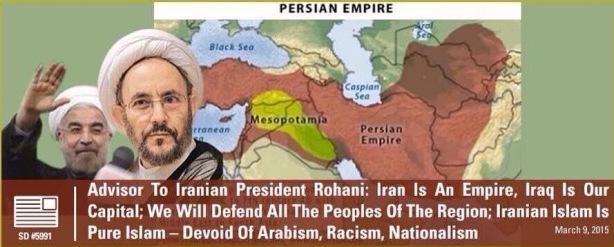 If we investigate a little bit, the monarchic Iranian or Republican culture both rely on racist approaches. Both insist on focusing Iranian education on mobilizing Persians via arrogant racist socially constructed myths in favor of bullying the Arab region, intending to building generations who harbor hatred towards Arabs even among opponents of the regime living in European countries, where we find that the hatred of the Arabs is rooted and ingrained. However, they endured the oppression from their rulers in the Royal era.
If we investigate a little bit, the monarchic Iranian or Republican culture both rely on racist approaches. Both insist on focusing Iranian education on mobilizing Persians via arrogant racist socially constructed myths in favor of bullying the Arab region, intending to building generations who harbor hatred towards Arabs even among opponents of the regime living in European countries, where we find that the hatred of the Arabs is rooted and ingrained. However, they endured the oppression from their rulers in the Royal era.
Iran is not a state of institutions as it claims, but a state of the militia. Charters and international laws will not deter it but it can be hindered by firm force as Iraq did in 1980 and Saudi Arabia in 2011 in Bahrain, as well as the Gulf-Arab alliance in a decisive storm in 2015, and add to this it is the right time for Arab countries to activate the cause of oppressed peoples in Iran such as Ahwazi Arab people under Iranian occupation and through supporting those people in their claim of right to self-determination.
I am well aware that the decisions to be made are difficult, but the most difficult is the fact that the world respects only those with power, regardless of moral imperative. Thus, we are forced into a Solomonic dilemma of having to launch a decisive storm in alliance with some Arab countries, against a much greater evil in the face of the Iranian regime.
The world has tolerated the status quo for military action approved by the Security Council; this approval would not have been possible if the operations did not originate on the ground and the Arab states did not prove they can take crucial decisions on their own without waiting for the approval of Western or Eastern states. Perhaps this successful model can lead the Iranian regime to shift from an offensive to a defensive position and to retreat to the inside, where it will be forced to face the long overdue retribution in the hands of its own citizens.
That is when the Iranian people will take their stand for freedom from tyranny and religious fundamentalism. And thus, the region can finally achieve the release from the evil of the Iranian regime. Revolution has not yet come to Iran. Therefore, Iran will be the major root of instability and violence all across the region.
Now the time has come when Arab nations, in order to rid themselves of terrorism, need to set aside their differences and act as a united force to confront Iranian hegemony.
In addition, the Western powers need to reconsider their view of the Middle East and not contribute to conflicts that may be difficult to contain later. The silence of the West to Iranian terrorism and intervention in the affairs of others is the primary reason for the growing instability and violence in the region.
When will the great powers take the actions of which they are capable and prevent the spread of violence in the region?
